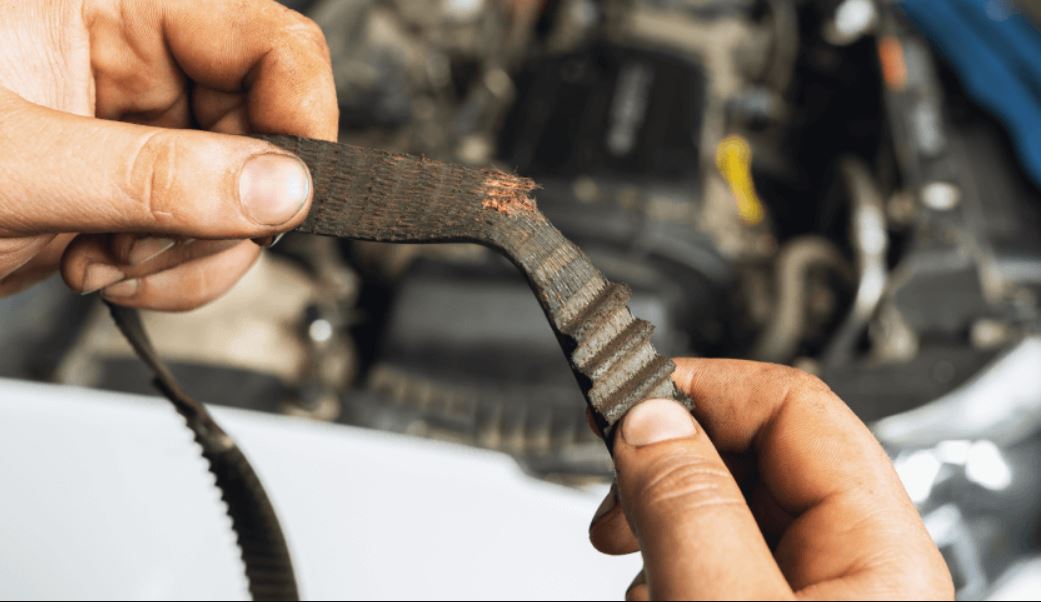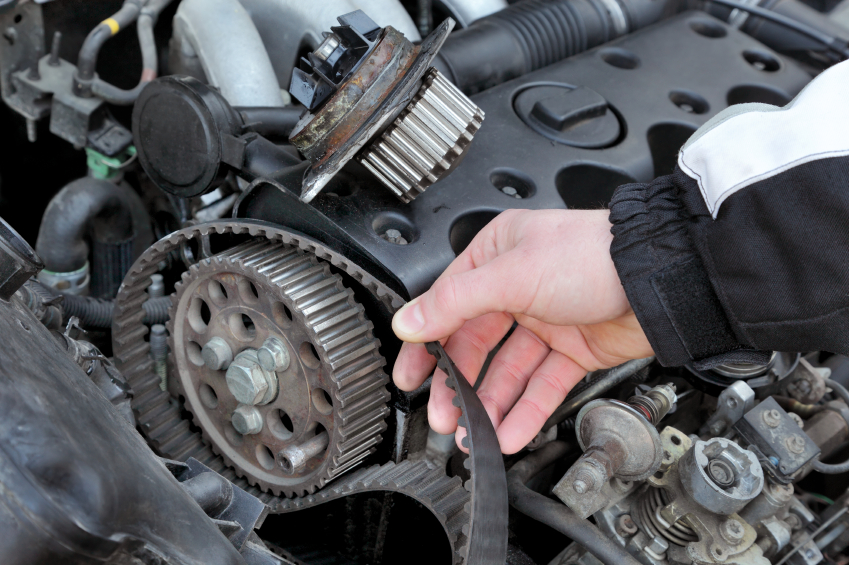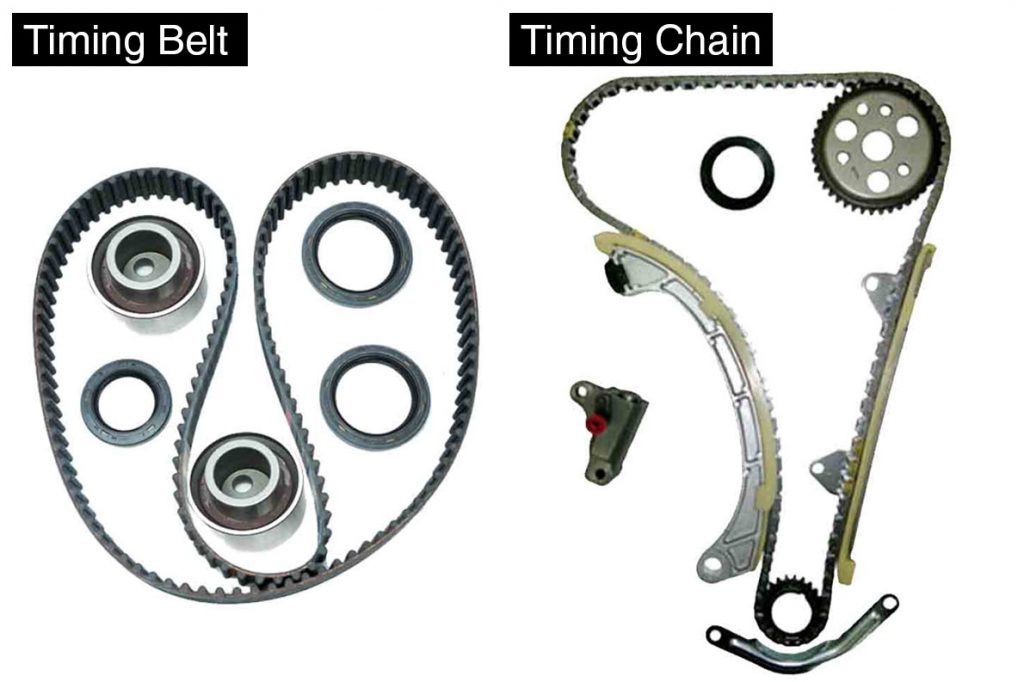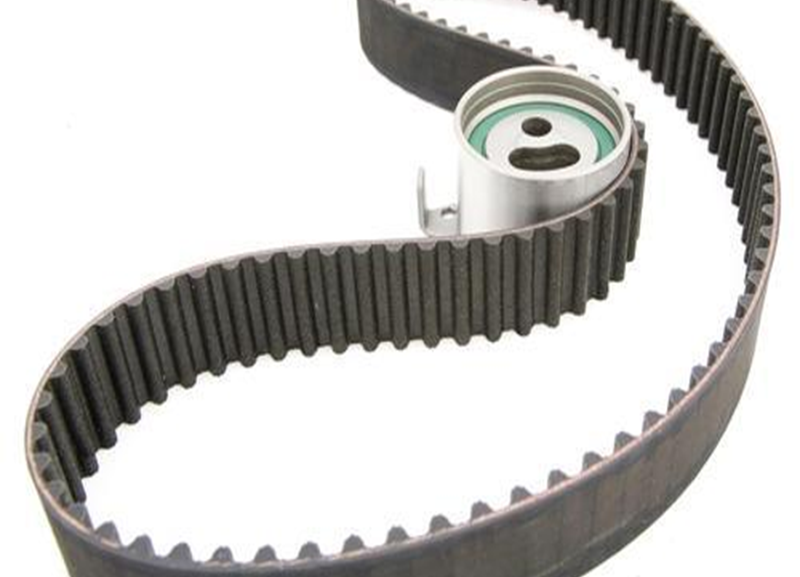A timing belt is a crucial component in your vehicle’s engine, responsible for synchronizing the rotation of the camshaft and crankshaft. This synchronization ensures that the engine’s valves open and close at the precise time for optimal combustion. Whether you own a sedan, an SUV, or a high-performance vehicle, the timing belt plays a significant role in maintaining engine efficiency and preventing mechanical failure.
What Does a Timing Belt Do?
The timing belt is designed to regulate the movement of internal engine components. It connects the crankshaft and camshaft, ensuring that the engine’s pistons and valves operate in harmony. A properly functioning timing belt allows for smooth engine performance, fuel efficiency, and reduced emissions. If the belt fails, the engine can suffer from misfiring, loss of power, or even severe internal damage.
Signs of a Bad Timing Belt
 Knowing the symptoms of a failing timing belt can prevent costly engine damage. Here are some key indicators:
Knowing the symptoms of a failing timing belt can prevent costly engine damage. Here are some key indicators:
- Ticking Noise from the Engine: A worn-out timing belt can cause a ticking sound due to improper tension or wear.
- Engine Misfires: If the belt slips or is damaged, the engine’s timing can be thrown off, leading to misfires.
- Rough Idling or Difficulty Starting: A faulty belt may cause the engine to struggle when starting or running smoothly.
- Oil Leaks: Worn seals around the timing belt cover may cause oil leaks, leading to further damage.
- Engine Won’t Start: In extreme cases, a broken timing belt may prevent the engine from starting altogether.
If you experience any of these issues, it is essential to have your vehicle inspected by a professional. You can book an online service appointment for a thorough check-up.
When to Change the Timing Belt?
Most manufacturers recommend replacing the car timing belt between 60,000 and 100,000 miles. However, this can vary depending on the make and model of your vehicle. Some SUVs may have more durable belts, but it is always advisable to check your vehicle’s owner’s manual or consult with a mechanic. Make an inquiry to determine the exact replacement interval for your specific car model.
Why Timely Replacement is Important
Delaying timing belt replacement can lead to severe consequences, including engine failure. Unlike other engine components, the timing belt does not give obvious warning signs before breaking. Regular maintenance ensures:
 Improved engine efficiency
Improved engine efficiency- Prevention of costly repairs
- Better fuel economy
- Enhanced driving safety
For vehicle maintenance solutions, check out 3M Glass Coating Protection to keep your car’s exterior protected or undercoating car protection to safeguard the underbody from rust and corrosion.
Timing Belt vs. Timing Chain
 Some vehicles use a timing chain instead of a timing belt. While both serve the same purpose, timing chains are made of metal and tend to last longer. However, they require proper lubrication and may become noisy over time. Understanding your vehicle’s setup can help you plan for maintenance accordingly.
Some vehicles use a timing chain instead of a timing belt. While both serve the same purpose, timing chains are made of metal and tend to last longer. However, they require proper lubrication and may become noisy over time. Understanding your vehicle’s setup can help you plan for maintenance accordingly.
Final Thoughts
The timing belt is a vital component that should never be overlooked. Regular inspections and timely replacements can prevent unexpected breakdowns and expensive repairs. If you suspect your SUV timing belt or car timing belt needs replacement, schedule a service with a trusted professional today. For updated pricing on timing belt replacement services, visit our price list.
Keeping your vehicle in top shape requires proper maintenance and awareness. By understanding what a timing belt does and when to change the timing belt, you can ensure a smooth driving experience and prolong the lifespan of your car’s engine. Stay proactive and protect your vehicle today.













